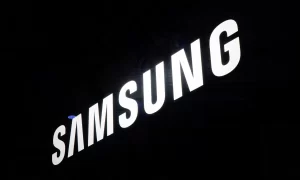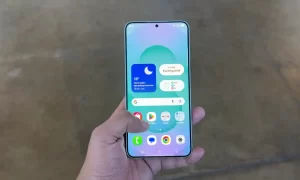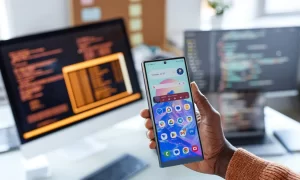The mobile phone landscape is a constantly evolving ecosystem, with new devices appearing regularly. Behind the scenes, manufacturers like Samsung work tirelessly to provide software updates, ensuring security and enhancing user experience. However, the lifecycle of every device eventually comes to an end, with software support being discontinued. Recently, Samsung announced the end of software updates for three of its devices, marking a significant milestone for these models.
Samsung, known for its extensive range of smartphones and tablets, maintains a robust update schedule for a vast number of its devices. This commitment to software maintenance is a significant undertaking, involving monthly, quarterly, and bi-annual updates for over 130 different models. This tiered system ensures that newer and higher-end devices receive more frequent updates, while older or budget-friendly models receive updates less often. However, the reality is that all devices eventually reach a point where they are no longer eligible for further software enhancements.
This month, Samsung officially concluded software support for three specific devices: the Galaxy A02s, the Galaxy A12, and the W21 5G. The W21 5G holds a unique position in this group, as it is the Chinese variant of the globally recognized Galaxy Z Fold 2. The international version of the Fold 2 had already reached the end of its update cycle in October of the previous year. This announcement confirms the end of the line for the Fold 2 family across all markets.
The Galaxy A02s and A12, positioned as more budget-friendly options, also join the ranks of devices no longer receiving updates. These three models, launched between late 2020 and early 2021, have enjoyed a considerable period of software support, spanning approximately four years. This timeline is fairly standard in the industry, offering users a reasonable period of consistent updates and security patches.
The W21 5G, being a flagship-level device, benefited from a more extensive update schedule. It received three major Android OS upgrades, keeping it relatively current with the latest Android features and improvements for a longer period. This is typical for flagship devices, which are often prioritized for major OS updates.
In contrast, the Galaxy A02s and A12, aimed at a different market segment, received two major OS upgrades. While not matching the flagship’s update count, this still provided users with significant software enhancements and newer versions of the Android operating system. These devices ultimately reached their final software version with Android 12 and One UI 4.1, Samsung’s custom Android skin.
The discontinuation of software updates for these devices doesn’t mean they will suddenly stop working. They will continue to function normally, but they will no longer receive security patches or new features. This means that over time, they may become more vulnerable to security risks. It’s important for users of these devices to be aware of this and exercise caution when installing apps or browsing the internet.
This announcement serves as a reminder of the ever-changing nature of technology. While it can be bittersweet to see support end for devices we may have relied on, it is also a natural part of the product lifecycle. Samsung’s commitment to providing updates for a substantial period is commendable, and users can generally expect a reasonable lifespan of software support for their Galaxy devices. As technology continues to advance, the cycle of innovation and obsolescence will continue, driving the development of new and improved devices.
















